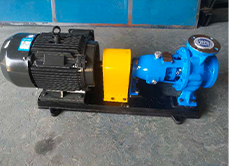Azerbaijani
- Afrikaans
- Albanian
- Amharic
- Arabic
- Armenian
- Azerbaijani
- Basque
- Belarusian
- Bengali
- Bosnian
- Bulgarian
- Catalan
- Cebuano
- Corsican
- Croatian
- Czech
- Danish
- Dutch
- English
- Esperanto
- Estonian
- Finnish
- French
- Frisian
- Galician
- Georgian
- German
- Greek
- Gujarati
- Haitian Creole
- hausa
- hawaiian
- Hebrew
- Hindi
- Miao
- Hungarian
- Icelandic
- igbo
- Indonesian
- irish
- Italian
- Japanese
- Javanese
- Kannada
- kazakh
- Khmer
- Rwandese
- Korean
- Kurdish
- Kyrgyz
- Lao
- Latin
- Latvian
- Lithuanian
- Luxembourgish
- Macedonian
- Malgashi
- Malay
- Malayalam
- Maltese
- Maori
- Marathi
- Mongolian
- Myanmar
- Nepali
- Norwegian
- Norwegian
- Occitan
- Pashto
- Persian
- Polish
- Portuguese
- Punjabi
- Romanian
- Russian
- Samoan
- Scottish Gaelic
- Serbian
- Sesotho
- Shona
- Sindhi
- Sinhala
- Slovak
- Slovenian
- Somali
- Spanish
- Sundanese
- Swahili
- Swedish
- Tagalog
- Tajik
- Tamil
- Tatar
- Telugu
- Thai
- Turkish
- Turkmen
- Ukrainian
- Urdu
- Uighur
- Uzbek
- Vietnamese
- Welsh
- Bantu
- Yiddish
- Yoruba
- Zulu
Telephone: +86 13120555503
Email: frank@cypump.com
İyl . 31, 2024 13:29 Back to list
Advantages of Using Progressive Cavity Pumps for Efficient Slurry Transportation and Handling Solutions
Progressive Cavity Pumps for Slurry Applications
Progressive cavity pumps (PCPs) have emerged as a vital component in various industries, particularly in handling slurries, which are mixtures of solids and liquids. These pumps are unique in their design and function, allowing them to efficiently transfer fluids with varying viscosities and solid contents. This article explores the significance of progressive cavity pumps in slurry applications, their operational principles, advantages, and considerations for usage.
Understanding Progressive Cavity Pumps
At the heart of a progressive cavity pump is its helical rotor and stator design. The rotor is usually made of metal, while the stator is typically constructed of elastomeric materials. When the rotor turns inside the stator, it creates a series of chambers that progressively move the fluid forward. This mechanism allows for a continuous flow of fluid with minimal pulsation, making PCPs highly effective for conveying slurries.
Applications in Slurry Handling
Slurry handling is a common requirement in industries such as mining, wastewater treatment, and food processing. In mining, for instance, a progressive cavity pump can transport slurries containing high solid content, such as tailings or ore, without clogging. In wastewater treatment plants, these pumps are often used to move sludge, ensuring that the process remains efficient and uninterrupted. The food industry also benefits from PCPs, particularly in the transport of viscous mixtures, ensuring that products are delivered without damage to their integrity.
Advantages of Progressive Cavity Pumps
progressive cavity pump for slurry

One of the most significant advantages of progressive cavity pumps is their ability to handle varying concentrations of solids while maintaining a steady flow rate. Unlike centrifugal pumps, which can struggle with slurries and may become clogged, PCPs are designed to accommodate solid particles, making them ideal for slurry applications.
Another benefit is their self-priming capability, which is essential in scenarios where the pump may be located above the fluid source. This feature reduces installation complexities and ensures reliability in operation. Furthermore, PCPs have a low shear rate, making them suitable for delicate fluids that can be damaged by high shear forces, such as certain food products or pharmaceuticals.
Considerations for Use
Despite their advantages, there are several considerations when using progressive cavity pumps for slurry applications. The selection of materials for the rotor and stator is crucial, as these components must withstand the abrasive nature of many slurries. Operators should choose materials that offer heightened resistance to wear and corrosion to maximize the pump's lifespan and efficiency.
Additionally, the viscosity of the slurry can significantly impact pump performance. While PCPs can handle various viscosities, it's essential to accurately assess the characteristics of the slurry to ensure optimal performance. Regular maintenance is also critical to prevent wear and ensure the pump operates efficiently over time. Routine checks and replacements of wear components can mitigate downtime and enhance the reliability of the pump.
Conclusion
Progressive cavity pumps represent a powerful solution for moving slurries across various industries. Their unique design and operational principles allow for the effective handling of complex mixtures that other pumps may struggle to manage. By understanding the applications, advantages, and maintenance requirements of these pumps, industries can maximize their efficiency and improve overall productivity. As technological advancements continue to evolve the capabilities of PCPs, their role in slurry applications will likely expand, further solidifying their importance in industrial processing.
-
Custom Drilling Mud and Slurry Pump Supplier - High Efficiency, Tailored Solutions
NewsJun.10,2025
-
Supply Vertical Submersible Sewage Pump High-Efficiency WQ/QW Pumps Supplier
NewsJun.10,2025
-
Premium Sewage Ejection System & Pumps Efficient Waste Removal
NewsJun.09,2025
-
Premium Wholesale Slurry Pump Impellers Durable & Efficient Slurry Handling
NewsJun.09,2025
-
Top Sewage Pump Companies Durable Industrial Solutions for Efficiency
NewsJun.09,2025
-
Heavy Duty Slurry Pumps - OEM High Performance & Bulk Wholesale
NewsJun.09,2025










